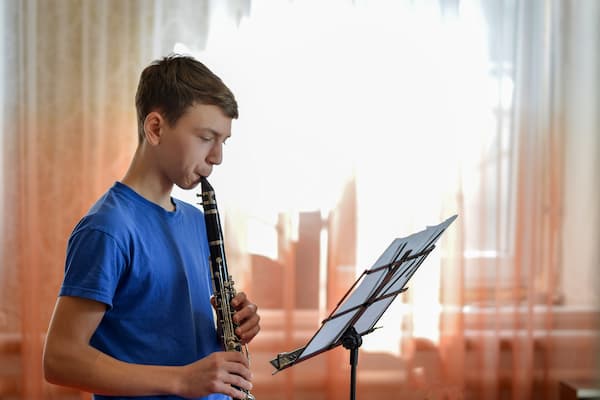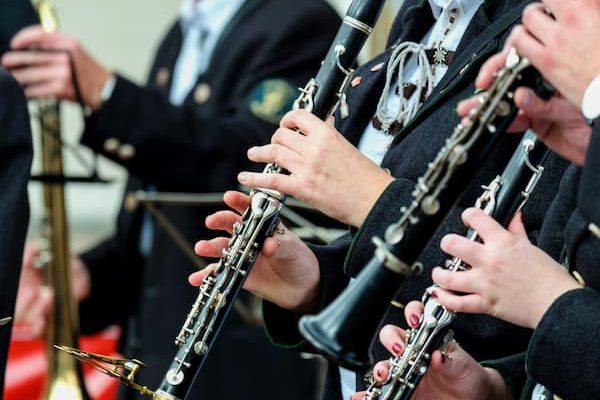Learning to play the clarinet comes with countless rewards! With its versatility, affordability, and ease of playing, the clarinet is an ideal instrument for beginners and experienced musicians alike. The clarinet has a unique sound that can add complexity and richness to any piece of music. It can be used to play solo pieces or blend in with other instruments like the piano or brass instruments. You will discover such joy and confidence when you challenge yourself musically by learning to play the clarinet. Once you learn how to read music and how to use proper technique, you will discover soon after the unmatched enjoyment of playing songs on this widely-loved instrument!


There are over ten types of clarinets. The most common clarinet is the Bb clarinet. Other clarinets include the Eb, which is about half the size of the most common Bb clarinet. Sizes of clarinets go all the way up to the bass clarinet, almost twice the size as the Bb!
Changing the reed is only necessary when it no longer plays well. This usually happens when the instrument has been played excessively over a significant period of time or when the reed becomes damaged (chipping or cracking) due to poor handling. Cane reeds can become unplayable when not stored correctly between practice sessions. A wise clarinetist should always have three working reeds in a playing rotation.
A clarinet reed with daily use is expected to last for at least one week. A regular cane reed could potentially last for several weeks when properly maintained. With play, all reeds will become softer over time, including cane reeds, plastic cover reeds, and synthetic reeds. However, the cane reed is more sensitive and will wear out sooner than the plastic cover and synthetic reeds. While synthetic reeds last longer, the initial cost is greater.
While a beginner clarinetist is learning to play, the lower-numbered reeds are more suitable because they are thinner. This makes it easier for the clarinetist to play because they lack the resistance of a thicker reed. Over time, as the clarinetist builds a stronger embouchure and gains the skills needed, he can move up reed sizes in half measurements. The harder or thicker reed provides a better tone and makes the higher notes easier to reach.
There could be several reasons as to why it is squeaking:
With the school being conveniently located in Orange Park, it is just a short drive for our students from Fleming Island, Green Cove Springs, Oakleaf, and Jacksonville.
For those who are not local, virtual lessons are also available.
[instagram-feed feed=1]

©2024. All Right Reserved. Built by Berean Web